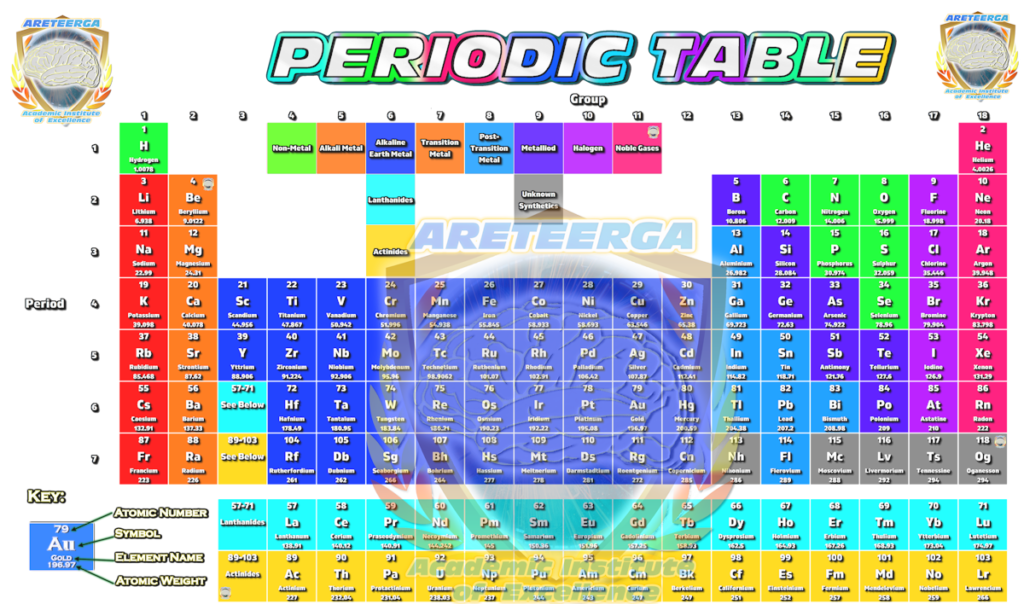What are Mnemonics?
Mnemonics are memory aids that help individuals remember information more effectively through the use of patterns, associations, or imaginative techniques. They capitalize on the brain’s natural ability to retain information by making it more memorable and easier to recall.

Mnemonics are a highly effective technique to boost memory encoding efficiency – allowing for formation of both short term and long term memory (STM & LTM) of new information.
Mnemonics can take various forms, such as acronyms, rhymes, visual imagery, or narrative stories, and they are particularly effective for memorizing lists, sequences, or complex information.
Research has consistently demonstrated the effectiveness of mnemonics in enhancing memory retention and recall (Reference: Dresler et al., 2017). Studies have shown that mnemonics facilitate deeper encoding of information, improve organizational strategies, and enhance retrieval cues, leading to better long-term retention. Additionally, mnemonics can engage multiple cognitive processes, such as visual, auditory, and spatial processing, which further strengthen memory formation.
However, the effectiveness of mnemonics can vary depending on individual differences, making it essential to tailor mnemonic techniques to suit individual learning styles and preferences.
Mnemonics offer a powerful and versatile tool for improving memory and learning. Their effectiveness is supported by research findings, which highlight their ability to enhance encoding, organization, and retrieval of information. By incorporating mnemonics into learning strategies, individuals can boost their memory performance and improve their overall cognitive abilities.
Why Memorize the Periodic Elements?

It’s The Foundation of Chemistry
The periodic table is the foundational tool in chemistry. It organizes all known chemical elements based on their atomic number, electron configuration, and recurring chemical properties. Understanding the periodic table provides a framework for understanding the behavior and relationships between elements, which is essential for further studies in chemistry.
Predicting Chemical Behavior
Knowledge of the periodic table allows chemists to predict the properties and behavior of elements and their compounds. By understanding trends in atomic size, electronegativity, ionization energy, and other properties across the periodic table, scientists can anticipate how different elements will react with each other and form compounds.
Identification of Elements
In practical applications, such as laboratory work or industrial processes, being able to quickly identify elements is crucial. Memorizing the periodic table helps scientists and engineers recognize elements based on their symbols, atomic numbers, and other characteristics.
Communication in the Scientific Community
Proficiency in the periodic table language is essential for effective communication within the scientific community. Whether discussing research findings, proposing hypotheses, or collaborating on projects, scientists rely on a common understanding of the periodic table to convey complex ideas accurately.
Education and Academia
In academic settings, understanding the periodic table is a fundamental requirement for students studying chemistry or related fields. Mastery of the periodic table is often assessed in exams and serves as a prerequisite for more advanced coursework.
Problem Solving and Critical Thinking
Memorizing the periodic table fosters problem-solving skills and critical thinking. It requires students to analyze patterns and trends within the table, helping them develop logical reasoning and scientific inquiry skills that are valuable in various disciplines.
Career Opportunities
Proficiency in chemistry, including knowledge of the periodic table, opens up a wide range of career opportunities in fields such as research, healthcare, environmental science, materials science, and engineering. Employers often seek candidates with a strong foundation in chemistry for positions that require analytical thinking and problem-solving abilities.
Proof of the power of Mnemonics:
Stay Tuned for:
- The Release of the Mnemonic that allows for Mastery of the chemical properties of the First 20 Elements.
- A Tier List of Memory Techniques!

Leave a Reply